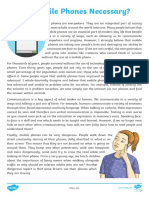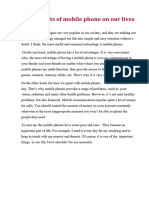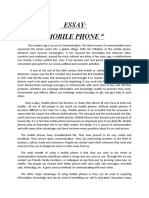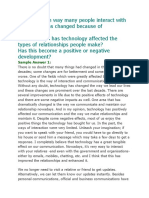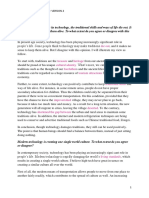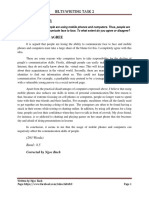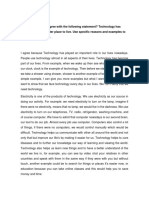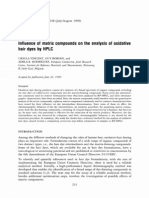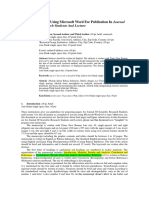0% found this document useful (0 votes)
7 views7 pagesScience and Technology
The document discusses the impact of technology on modern life, highlighting both its benefits and drawbacks. While technology, including mobile phones and the Internet, facilitates communication and access to information, it can also lead to social isolation and health issues. The author emphasizes the need for responsible use of technology to avoid potential negative consequences.
Uploaded by
chgav.2021Copyright
© © All Rights Reserved
We take content rights seriously. If you suspect this is your content, claim it here.
Available Formats
Download as DOCX, PDF, TXT or read online on Scribd
0% found this document useful (0 votes)
7 views7 pagesScience and Technology
The document discusses the impact of technology on modern life, highlighting both its benefits and drawbacks. While technology, including mobile phones and the Internet, facilitates communication and access to information, it can also lead to social isolation and health issues. The author emphasizes the need for responsible use of technology to avoid potential negative consequences.
Uploaded by
chgav.2021Copyright
© © All Rights Reserved
We take content rights seriously. If you suspect this is your content, claim it here.
Available Formats
Download as DOCX, PDF, TXT or read online on Scribd
/ 7




